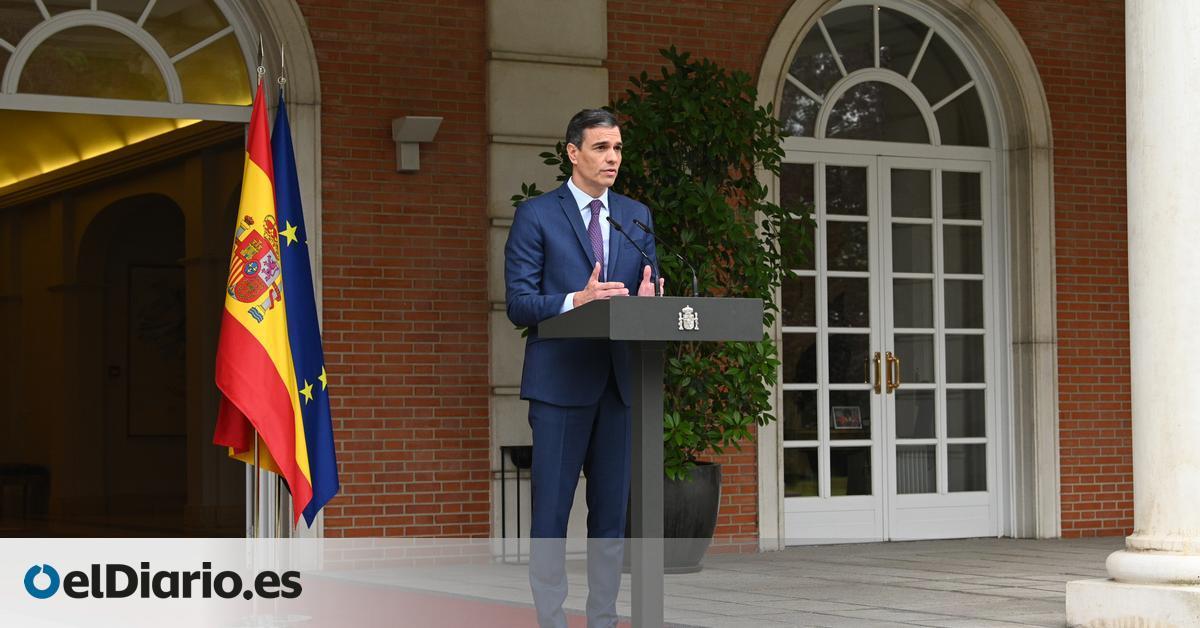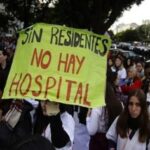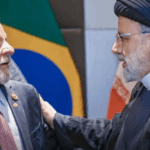
When the Moncloa clocks struck ten at night, the electoral count of May 28 was no longer considered a mere trickle of bad news. The data that passed before the eyes of Pedro Sánchez and his small group of trust even a while before the official scrutiny ruled on the catastrophe, fell like a real cluster bomb at the headquarters of the Government Presidency. Seville, Valladolid, Toledo, Palma, Logroño, Huelva, Murcia and so on up to a total of 15 provincial capitals. Then came Extremadura, Aragón, the Balearic Islands and La Rioja. Almost everything that could be lost was lost.
From the call to the investiture: the calendar that opens before the electoral advance to 23J
Further
The scene of the President of the Government together with his Cabinet Director, Óscar López, and his Deputy Director, Antonio Hernando, meeting in an office in Moncloa, soon became something similar to a funeral. Part of the drama was provided by the fact that it was an unforeseen debacle. Because no one, according to all the sources consulted in the Executive and in Ferraz, knew how to predict a scenario in which the PSOE would be stripped of the vast majority of its territorial power after being swept away by the blue wave that ended up dyeing the country in favor of the right.
The magnitude of the disaster harvested did not take long to make a dent. To Ferraz street, where the party’s general secretary did not go on Sunday night, explicit messages arrived that the public reaction had to be forceful and that the assumption of responsibilities had to be drawn from the first minute. At the stroke of midnight, the spokesperson for the Federal Executive, Pilar Alegría, appeared before the press: “We take up the gauntlet, we understand the message and from now on we get to work to make things better.” According to all the sources consulted that were aware of the decision, the president had not yet transferred his intention to play it again, perhaps for the last time, to all or nothing.
It was well into the morning when the decision was clear in the hard core of the President of the Government: it was impossible to ignore the noise of the electoral result and it was necessary to act now, with a coup typical of Pedro Sánchez’s political career. Both Moncloa and the party agree on the infeasibility of extending an unsustainable situation until December from the electoral point of view, but also from the country’s own governance and the internal coexistence of the PSOE, where dozens of mayors and regional presidents lament that “the noise of national politics” has evicted them from their respective governments. And it was also late in the morning when the party leadership received the call.
María Jesús Montero, Félix Bolaños and Santos Cerdán were summoned late at night at the Palacio de la Moncloa. According to the sources consulted, and despite the fact that not all those present saw the movement clearly at first, there was hardly any debate. The arguments of the president’s team and Pedro Sánchez himself, who endorsed the decision, sounded forceful. It wasn’t about throwing in the towel, he explained to himself, quite the opposite. To make the last attempt to avoid the shipwreck. “Win or die”, is summarized in the PSOE.
The Socialists take a very specific political reading from 28M: that puffing up the management is not enough if the right wins in the street a story that has clearly ended up prevailing. “People have voted against the noise of our coalitions and our parliamentary agreements”, they openly admit in Ferraz regarding the coexistence of the PSOE with Podemos and with groups like EH Bildu and ERC.
That conclusion, that a large part of the people who voted on Sunday did so against that pact policy and that many others stayed at home also demobilized by those agreements, is one of the reasons that weighed most heavily on the president at the time to call early elections and abruptly end the legislature. “We had six months left of Podemos criticizing each other, of fights between them over Sumar and of ERC and EH Bildu collaborating less and less. And people have been clear about all that ”, they comment in the PSOE.
In Moncloa they explain the movement, moreover, as a tactical and strategic decision of the president, who in his appearance on Monday to communicate the electoral advance already admitted that “the meaning of the vote conveys a message that goes beyond” the municipal and regional scope . The Socialists believe that the first achievement of the announcement is to abruptly put an end to the “party” of the right and the ultra-right. “Now they are going to talk about elections, about deciding the future of this country,” they stress. And they value the fact that it is the president who takes the lead, assuming any responsibility in the face of a right-wing and ultra-right government scenario. “It is a movement against demobilization,” they point out.
“People are going to decide if they want the right to govern, and for that they have Feijóo or Abascal there, or if they want the left to govern. And for that it has been shown that the only stable and realistic option is that of Pedro Sánchez ”, they raise in the Executive in clear allusion to their left-wing partners, of whom they lament the poor results obtained in the municipal and regional governments and their lack of institutional weight to be able to negotiate governments.
There are critical voices in the PSOE who are missing the fact that the president did not decide to “cut his losses” a few months ago and restructure the coalition Executive to do without Podemos. “The crisis of ‘only yes is yes’ was unaffordable. That was not just another crisis of coexistence, they insulted us for weeks and showed they did not have sufficient political maturity. And that surely deserved another political response to our voter ”, analyzes a critical voice of the party.
After the debacle, in Ferraz they assume this criticism and recognize that the hypothesis of vindicating the coalition with Podemos and trying to make it profitable at the polls (defended in public and in private by the president) no longer exists since Sunday night. “It is not necessary to stop them at this point, the message is very clear,” says a socialist leader, who adds: “Now yes, it is evident that we have come this far.”
Source: www.eldiario.es

